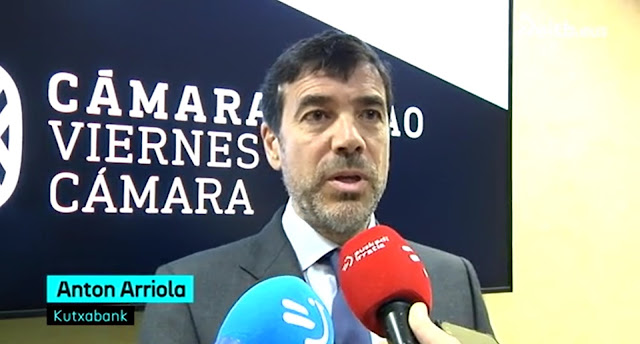Reaction
A week after the municipal elections, we seem to be willing to analyse the results that have left these new elections, which will mark the institutional policy of the municipalities over the next four years. The most worrying aspect of all possible studies is undoubtedly the increase of the tip of the right in the Catalan countries.
The extreme right of Vox has achieved 395 councillors in towns and cities of Catalonia, Valencia and the Balearic Islands. In the Autonomous Community of Catalonia they have gone from 3 councillors to 124, won 114,413 votes over the 2019 elections and won 5.01% of the votes. A priori we can believe that all this is the result of the reaction of the procès and the rise of independence. However, I think it is a misguided and complacent reading.
Vox joins the plenary sessions of the four capitals: three councillors in Tarragona, two in Barcelona and Lleida and one in Girona. In the rest of the 63 Catalan municipalities with over 20,000 inhabitants, forty municipalities have obtained representation, especially in the industrial districts of Llobregat Beherea, Vallès Occidental and Tarragonès.
According to these data, the party of Santiago Abascal was represented in 76 of the 133 municipalities of Catalonia presented. Considering that there are 947 municipalities in the country, the extreme right of Vox will only be in 8% of them, but this figure should not be underestimated considering that these municipalities concentrate 65% of the population.
The extreme right grows thanks to hate speech against neighbours excluded from the elections
Two issues are fundamental to try to understand the results and begin to recover them as soon as possible. The first is that Vox has won most votes in low-income neighborhoods. However, it should not be forgotten that it continues to achieve very good results even in neighborhoods with very high incomes such as Barcelona. And we wonder how much of the votes of the popular classes, a party that leads ladies and gentlemen and defends economic measures against the interests of the popular classes, can be obtained?
Two factors explain this. First of all, the neighbors have had little response from the governments of the last decades to solve the problems of these neighborhoods. That is, Vox has become a vote for many people. Secondly, there has been a great general abstention, especially in these places, which in Catalonia has been 44.44%, nine points more than in 2019, and has facilitated representation in many places.
The second issue is the speech against the Okupas, unaccompanied minors and migratory communities. This has allowed him to hide his proposals against society and gain support by facing the most disadvantaged. In five of the eight Catalan municipalities in which the Ultraderecha has obtained more than 11% of the votes, migrant persons represent between 12.5% and 35% of the population. The conclusion is clear: the extreme right grows thanks to hate speech against neighbours excluded from the elections.
Finally, two facts must be highlighted: 220 councillors and 155,808 votes lost by Citizens compared to the previous municipal elections, ten councillors who have become marginal party and Vox has benefited from this. Finally, and I think the most worrying thing is that your speech is becoming more and more integrated among younger voters. Therefore, given the situation, it is clear that polyhedral strategies are needed to stop the right-end reaction before it is too late.
Bidali zure iritzi artikuluak iritzia@argia.eus helbide elektronikora
ARGIAk ez du zertan bat etorri artikuluen edukiarekin. Idatzien gehienezko luzera 4.500 karakterekoa da (espazioak barne). Idazkera aldetik gutxieneko zuzentasun bat beharrezkoa da: batetik, ARGIAk ezin du hartu zuzenketa sakona egiteko lanik; bestetik, egitekotan edukia nahi gabe aldatzeko arriskua dago. ARGIAk azaleko zuzenketak edo moldaketak egingo dizkie artikuluei, behar izanez gero.
A few weeks ago, on Diputación Street, in the centre of Vitoria-Gasteiz, two men threw a homeless person off the small landing outside the place where he slept. In addition to being thrown away, a metal railing was immediately placed in front of the lonja. Although the place... [+]
The lights of the theater are on. Discreetly, I’m walking on the steps: the school performance is about to begin. The young men run to their seats, full of life and joy. The retreat has the taste of liberation, but this feeling of freedom speaks Spanish or French. This... [+]
Wikipedian bilatu dut hitza, eta honela ulertu dut irakurritakoa: errealitatea arrazionalizatzeko metodologia da burokrazia, errealitatea ulergarriago egingo duten kontzeptuetara murrizteko bidean. Errealitatea bera ulertzeko eta kontrolatzeko helburua du, beraz.
Munduko... [+]
Egypt ' s urban planning plan for the Gaza Strip has recently been expanded. A drawing shows the streets, buildings and imagery of the future on a reality that still smells of shrapnel and explosives. The urban planning proposal, used as another bomb shot. Individual house... [+]
Bizitza erdigunean jartzeko abagunea ikusi genuen feministok zein ekologistok Covid-19 pandemia garaian. Ez ginen inozoak, bagenekien boteretsuak eta herritar asko gustura itzuliko zirela betiko normaltasunera. Bereziki, konfinamendu samurra pasa zutenak haien txaletetan edo... [+]
Segurtasun falta dagoen irudipena handitu dela azaldu du Eustaten azken txostenak. Gurean, Trapagaranen, Segurtasuna orain, delinkuenteen aurka manifestaziora deitu dute herritar batzuek.
Bi izan dira sentsazio hori zabaltzeko arrazoiak. Batetik, udalak Udaltzaingoaren... [+]
There are those who subscribe to portals to sell their homes because they would like to buy a house. From time to time they even make appointments to see the houses, and I am sure that the seller knows that these people will not buy the house, not because they find it in the... [+]
Haurtzaroaren amaiera eleberri distopikoa idatzi zuen Arthur Clarkek, 1953. urtean: jolasteari utzi dion gizarte baten deskribapena. Eta ez al da bereziki haurtzaroa jolasteko garaia? Jolasteko, harritzeko, ikusmiratzeko eta galdera biziak egiteko unea. Ulertzeko tartea zabalik... [+]
The writer Juan Bautista Bilbao Batxi worked in a boat and sent the chronicles of his travels to the newspaper Euzkadi. Thanks to this, we have interesting chronicles in Basque from around the world from the beginning of the 20th century. In June 1915, he made his stop in... [+]
From linguistics or glotophobia and, of course, hatred against Basque, we have often seen our Basque become the dandruff of all sticks. Last of all, the president of Kutxabank, Anton Arriola, has been shaking our language and giving us galantas.The President of Kutxabank,
... [+]
Do not look for this connection from Ezkio or Altsasu, let alone crossing the Ebro River through Castejón. The connection, or rather the connections, between the Basque Y and the AVE of Navarre is already a reality. It is these links in the plural that should concern us and... [+]
Don't make a fuss, don't confront, don't victimize... and obey. As oppressed subjects, in this case as Basques, we talk, how many times have we had to listen to them? Ironically, two years ago, at the Euskalale Independentiston Meeting, Esne Arzallus said: "We have arrived here,... [+]
Aurten "Israel Premier Tech" txirrindularitza talde israeldarra ez da Lizarraldeko Miguel Indurain Sari Nagusia lasterketara etorriko. Berri ona da hori Palestinaren askapenaren alde gaudenontzat eta munstro sionistarekin harreman oro etetea nahi dugunontzat, izan... [+]
Intsumituek denbora luzez egindako borroka gogorra eta mingarria izan zen, baina irabazi zuten, eta garaipen hura behin betikoa izango zela uste genuen, atzera bueltarik gabea. Baina badirudi, politikari batzuen ahotik aterata, eskalada militaristari gorazarre egin eta berriz... [+]





















